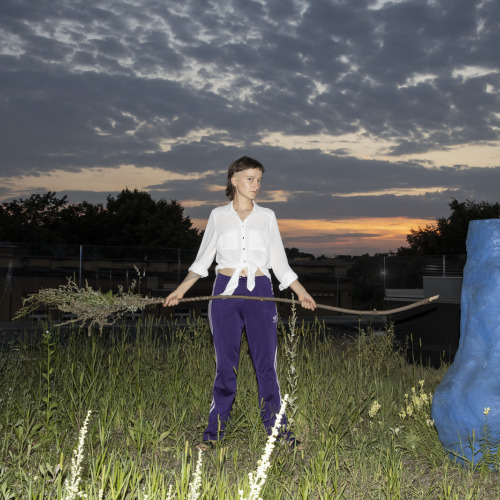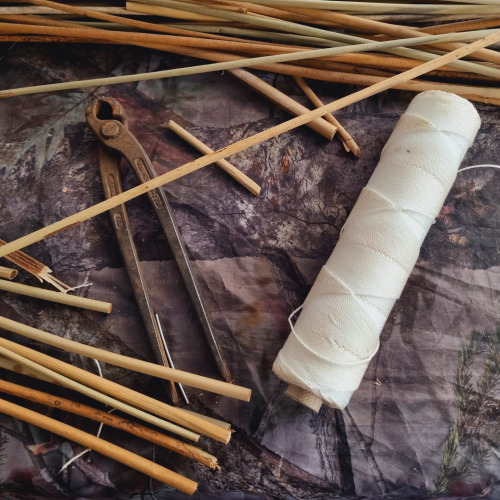
Rakhshan Bani-Etemad - Beginning of the retrospective
Films of the retrospective
Nargess
Afagh, an aging thief whose beauty and
attraction is fading, has been sharing
her love and life of petty crime with the adolescent Adel. One day, in the
slums of the capital, Adel meets the beautiful, poor and honest, Nargess. He
falls desperately in love with her and decides to change his life. But before
he can marry her, he agrees with Afagh to carry out a last burglary…In their
continuing struggle for dignity and against poverty, both women in this love
triangle become the victims of an immature man…
Nargess is an excellent social
crime-drama, that brilliantly portrays multi-dimensional characters, their
complex relationships, their hopes, loves, dignity, anger and despair, living
on the fringe of society. “Bani-Etemad pushes the Iranian censorship code to
the limit, managing to make her outsider characters believable and moving”
(Deborah Young, Variety).
Best Director & Best Score at the Fajr
International Film Festival (1992)
Directed by Rakhshan Bani-Etemad; written
by: R. Bani-Etemad, Freydun Jeirani; dir. of photography: Hossein Jafarian; editor:
Shirin Vahidi; sound: Parviz Abnar; music: Mohammad Reza Aligholi; cast: Farimah Farjami,
Atefeh Razavi, Abolfazl Poorarab, Reza Karamrezai, Vajiheh Loghmani, Mohammad Reza Khamseh,
Majid Golpayegani, Mohammad Zarandi-Nia; producer: R. Bani-Etemad (Arman Film) Iran, 1992, 35mm, colour, 100’, farsi (Eng. subtit.)
Banoo-Ye
Ordibehesht / The May Lady
Forough Kia, a 42 year old filmmaker, is a
single mother who lives with her teenage son Mani in the capital. She’s
successful in her work, but is at a turning point in her private life. Mani,
with whom she has an affectionate, yet stormy relationship, considers himself
the man of the family. When Forough starts thinking about engaging in a new
relationship, a war of nerves between mother and son breaks out. But she asks
herself, “Why should the gift of motherhood deprive me of another gift: love?”
All this is happening at a time when she is commissioned to shoot a documentary
about the “ideal mother”. Forough is surrounded with videotapes on which women
talk about the difficult social problems they are confronted with. The
discrepancy with Forough’s feelings become painfully apparent. “The film’s
simple narrative places the main characters in different situations,
encounters, human relations and beliefs, presenting close-up images of their
reactions, which are repeated in more detached forms in the documentary
sections. To graft documentary images with a subdued dramatic structure was a
stylistic device which I had long wanted to employ, and The May Lady provided
that opportunity” (R. Bani-Etemad) The name of the leading character is a
reference (the director’s tribute?) to one of Iran’s most talented
pre-Revolutionary woman poets, Forough Farrokhzad (1935-1967). Farrokhzad’s –
herself a divorcee, and mother of one son – poetry is amongst the most
remarkable, controversial and important in the history of 20th century Iranian
literature (in Slovenia, her best known poem was recited in Abbas Kiarostami’s
homonymous film The Wind Will Carry Us). “Rakhshan Bani-Etemad has produced her
most personal film in the haunting May Lady. While her method recalls the
coolly distanced views of Godard, Akerman and Duras, it also emerges
organically from her own background as a socially engaged documentarian.”
(Geoffrey Cheshire in Variety). The May Lady won the FIPRESCI Award at the
Montreal Film Festival (1998).
Written and directed by Rakhshan Bani
Etemad; dir. of photography: Hossein Jafariyan; edited by: Masumeh Shah-Nazari, Mostafa
Kherghepoush; art director: Amir Esbati; sound: Parviz Abnar; cast: Minoo Farshchi, Mani Kasraian,
Golab Adineh, Atefeh Razavi, Baran Kosari; producers: Ali-Reza Raissian, Jahangir
Kosari. Iran, 1998, 35 mm,
colour, 88’, farsi (Eng. subtit.)
Baran va bumi / Baran and the Native
Baran, a teenage tourist, meets a young
native boy on a one-day-trip to an idyllic island. She asks him to get her a
pearl. The native dives, sends up a full basket of pearls but, he himself
doesn’t resurface. Did Baran really see the boy? Or was it just a fantasy?
Baran and the Native premiered at the Venice Film Festival in 1999, and was
screened at last year’s LIFFE. R. Bani-Etemad: “After I’d been to Kish, I
reviewed my notes…and certain vivid images came to mind: the turquoise water,
the golden sand, the palm trees, but especially the rugged and sunburnt faces
of the natives as they passed by, completely ignoring the hordes of tourists.
An idea sparked: Does anything last of all these events on the island? A memory
of a casual meeting? Or perhaps love?…I glanced at my teenage daughter, who
would experience love sooner or later. Perhaps her introduction to love could
be in an unknown island such as this, perhaps a faraway dream.”
Directed by Rakhshan Bani-Etemad; written
by: R. Bani-Etemad & Asghar Abdollahi; dir. of photography: Hossein Jafarian; editor:
Mostafa Kherghepoush; sound: Parviz Abnar; cast: Baran Kosari, Ebrahim Sheibani, Shirin
Dibaj; producer: Mohsen Qarib (Kish Tourism Organisation) Iran,
1998, 35 mm, colour, mono, 20’, farsi (Eng. subtit.)
Zir-e poost-e shahr / Under the Skin of the City
We are in the heat of the parliamentary
elections. There is an atmosphere of great expectation and anxiety in the air.
Tuba is a worker, a mother and a wife. She works in a factory out of financial
necessity, mothers out of love and devotion, and “fulfils her wifely duties”
out of responsibility. Her husband, handicapped by a beating in a political
demonstration in his younger days, is unemployed, out of touch. Despite her
hardship, she does her best to hold her family together and hopes for a better
future. Her eldest son, Abbas, is not resigned to his predicament. He is trying
to obtain a visa, to go to work abroad, make some money and better his family’s
lot. In his haste and enthusiasm to get a job abroad he puts Tuba’s sole source
of solace, her modest home, in jeopardy. “Beneath Tehran’s surface there are class divisions,
dim economic prospects and exploitation, domestic violence, mistrust among
neighbours, runaway girls living on the streets dressed as boys, and political
violence. In this environment, Tuba tries to inject a quality of life for her
family, while keeping them safe and secure. These two sometimes contradictory
desires collide in severe ways. (…) we are reminded that systems of violence
sometimes force those closest to our hearts into complicity.” MS in Bad Jens
(Iranian Feminist Newsletter). Zir-e poost-e shahr won the Netpac Award at the
Karlovy Vary Film Festival this year, and the Special Jury Prize at the Moscow
International Film Festival. The film is currently a huge box-office success in
Tehran.
Directed by Rakhshan Bani-Etemad; written
by R. Bani-Etemad, Farid Mostafavi; dir. of photography: Hossein Jafarian;
editor: Mostafa Kherghepoush; sound: Asghar Shahverdi; cast: Golab Adineh,
Mohammad Reza Foroutan, Baran Kosari, Ebrahim Shaybani, Mohsen Ghazi Moradi,
Homeyra Riazi, Ali Osivand, Mehraveh Sharifinia; producer: Jahangir Kosari, R.
Bani-Etemad; Iran, 2000, 35 mm colour, 92’, farsi (Eng. subtit.)
Rusariye Abi / The Blue-veiled
Rashul Rahmani, in his sixties, is the
happy owner of a vast fruit and vegetable farm. A widower for nine years now,
he lives alone with his daughter. He is a kind-hearted boss, always seeking to
please his many employees as best he can. One holiday, his foreman offers all
his workers meat, and following the boss’s suggestion, he distributes more to
the married women than to the others. Ashgar, who is unmarried but has three
dependants, protests against this injustice and refuses to accept the gift.
When Rashul Rahmani hears about this, he decides to resolve the problem by
personally offering a gift to the woman. He learns that she is living in dire
poverty, with a half-insane, drugged mother, a brother who lives off drug
peddling, and a sister who cannot find work. To alleviate their condition,
Rahul allows the sister, Nobar Kordani, to work for him. Rashul soon falls in
love with her, but Nobar at first keeps her distance, as social conventions
forbid an employer to love one of his workers… R. Bani-Etemad: “The main
character of my film, Nobar, belongs to that social class in which working
women bear the major share of responsibilities. Rusariye Abi describes the
relationship between a man and a woman whose differences in age and social
status — unacceptable in our country — make them outcasts. Nobar needs
financial support and security for herself and her family. Except for his
daughter’s love, the man feels very much alone. If, for Nobar, love is
synonymous with economic security, it represents for the man a peaceful
existence and an escape from his loneliness. Such an attitude does not conform
to social norms, it is considered unacceptable. Rusariye Abi is the story of an
unequal struggle: the impossibility to reconcile their desires and deeper needs
with the social norm.”
In 1995 Rusariye Abi won the Bronze Leopard at the
Locarno Film Festival and the FIPRESCI Award at the Thessaloniki Festival.
Written and directed by Rakhshan
Bani-Etemad; dir. of photography: Aziz Sa’ati; editor: Abbas Ganjavi; music:
Ahmad Pezhman; sound: Parviz Abnar, Morteza Dehnavi; cast: Ezzatollah Entezami,
Fatemeh Motamed-Aria, Golab Adineh, Afsar Asadi, Jamshid Esmailkhani; producer:
Majid Modarresi. Iran,
1995, 35mm, colour, 85’, farsi (Eng. subtit.)
Program of the retrospective:
Slovenska kinoteka, Miklošičeva 28, Ljubljana
Wednesday, 10. October at 22.30: Nargess
Monday, 15. October at 18.00: Banoo-Ye
Ordibehesht (The May Lady)
Wednesday, 17. October at 20.00: Baran va
bumi (Baran and the Native), Zir-e poost-e shahr (Under the skin of the City);
introduced by the director.
Thursday, 18. October at 22.00: Rusariye
Abi (The Blue-Veiled), introduced by the director.
Rakhshan Bani-Etemad
Autumn Film School: lecture
Klub Metropol
Wednesday,
17. October at 15.00
More on the Autumn Film
School at
http://jfs.kinoteka.si/
An essay on the work of Rakhshan
Bani-Etemad is published in the October issue of Kinotečnik.
organised by the Jesenska filmska šola,
Ekran, Slovenska kinoteka
in collaboration Mesto žensk / City of Women


